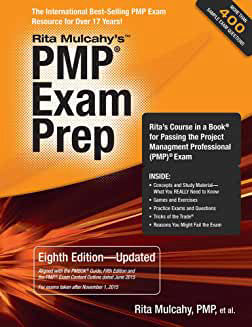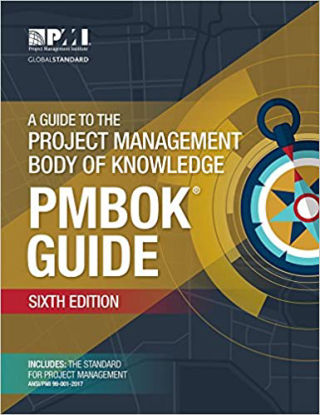Another question I frequently field either in short succession of the above discussion or in some cases before, is my personal experience and value derived in being a PMP holder. I typically share the following:
To start, the PMP is not for everyone. Some see it as a ticket to entry into specific roles or getting to the next level in their career, others see it as a logical and rewarding contribution to further their commitment to the project management trade craft, ultimately becoming better project management practitioners. My motivations were multi-part; I knew having a PMP would be an increasing price of entry as I looked to grow my career in project management and it was a skill and knowledge domain that would be valuable regardless of future career path. Similar to other certifications, the PMP can be seen as a short term effort that stops after successfully passing the exam, or it can be seen as a great learning opportunity, one that starts a journey of continuous learning and usefulness in your career.
What was your experience with competing the PMP?
My experience was overall great. As I embarked on pursuing my PMP, I discovered my employer at the time wouldn't sponsor attending a boot camp or the certification exam, even if you were in the Program & Project Management job family unless you were of a specific career level (at the company) and had a customer requirement to hold a PMP for your role. Fortunately, I discovered this after mentally committing to pursuing it and actually quite frankly put a chip on my shoulder that I would do it myself via self-study and self-funding. I conducted some due diligence by reaching out to some friends and mentors that were PMP holders as well as conducting some online research of what others advised for self-study. Most were reassuring that a one week boot camp course was not necessary while others (primarily online resources) recommended virtual boot camps (30-50 hours plus). It was ultimately a former professor and mentor that suggested the path I took. It was leveraging Rita Mulcahy's PMP exam prep book (listed above). It perfectly filled the void of information I would expect to be shared during a boot camp that covers theory, but also practical approach.
It took me about 12-14 months to move from exam book purchase to successfully passing the exam. During this time I had multiple "false starts", I'd read a chapter then get busy with work or personal life and then need to re-read 2-4 weeks later as I tried to get restarted. It was near the end of this period that my employer at the time sent a large collection of us to a one week intensive Amazon Web Services (AWS) Solution Architect Associate training accelerator. To which I turned around into certification in 10 days. Coming out of this and the momentum gained, I decided I would try a similar, intense approach, to my PMP and restarted Rita Mulcahy's preparation book. It took between 2-3 months of spending most nights, weekends, and "free" time at work (studying and self-studying job relevant certifications was approved and encouraged) to study. This period of intense studying was tempered by my desire to not only successfully pass the exam, but also have significant knowledge gains that would be applicable in my current role and into the future. This manifested in re-reading sections of interest, asking more questions of colleagues and mentors on the applicability of certain practices, or simply "why" - "why" did they do something a certain way?
Personally, approaching it this way, was very rewarding and made the certification accomplishment that much more significant of a milestone in my career.
How has this benefited you in your career?
The certification itself is increasing a basic or preferred qualification to jobs that have a project management component; having the certification eliminates that barrier to entry. More impactful was the knowledge gained through the pursuit I outlined above. It provided me knowledge that was withstanding the certification exam and has continually been applicable and valuable in my career. Unfortunately, like many certifications, there are certification holders that achieved the certification and then let the knowledge lapse. With core principles and practices no longer being observed. Simply not good stewards of the credential. I'd highly encourage you evaluate your motives for the certification and save yourself time, energy, and cost if you are in the latter camp. If you are in the former, you will find the pursuit of the certification, the certification, and the continuing education requirements associated with it will continue to yield benefits in your career for years to come.
What kinds of opportunities did PMP open up for you?
I haven’t seen too many direct opportunities from it, but there are certainly secondary and tertiary benefits, such as what I mentioned above. The more direct benefit, in my opinion, was the knowledge gained from the pursuit opposed to the credential. No matter what, the credential and the related knowledge will serve as a differentiator and a major tool in your tool-belt as you ascend in your career. No matter what we all manage projects in some way; only difference is scope, scale, and formality of whether it is called a "project".
What would your advice be for transitioning from a technical support environment/role into more of a project management role?
Seek opportunities, whether at your place of employment or via volunteer opportunities (PMI once a paying member, you can join local PMI Chapters that may offer some opportunities and be good networking in your local geography) to gain exposure. That is how I made the pivot myself, I let my management know my interest in the field and fortunately I had great managers that wanted to give me some opportunities to explore the space. This gradually grew until I found myself on a project controls team doing financial and schedule management. I’d be vocal (if you believe your manager(s) will be supportive about your interest and try to gain gradual exposure/experience. I’d also recommend investing in yourself, regardless of whether there are opportunities at your current employer. Even if not directly pursuing a PMP (perhaps due to experience requirements), I’d look into PMI’s associate PMP or CompTIA Project +. These would give you some additional education, plus begin to indicate to your current employer and recruiters that you have an interest in this area and that you have taken initiative and invested in yourself.
Are there any industry terms that you know of for these types of roles? (I have heard Project Coordinator, Program Manager, etc.).
Certainly not an exhaustive list, but: Project Manager, Project Analyst, Project Coordinator, Program/Project Management, Program Manager (this is usually more senior, but you may see a Program Management Analyst or some type of expansion on Program Management), Engagement Manager, Project Leader, and Agile X (Product Owner, Scrum Master, etc.). I'd also recommend checking out this list by projectmanagement.com.

